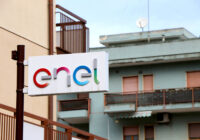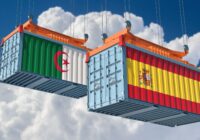For decades, the relationship between Morocco and Algeria has been characterized by tension, indirect attacks and the support of proxies. The Algerians back the Polisario Front, an armed group that fought Morocco for control of Western Sahara from 1975 to 1991. Morocco is in charge of most of the territory and considers it to be its own, but the Polisario wants independence. The Moroccans are accused of supporting groups that Algeria recently designated as terrorists. These include the Islamist Rachad and the Amazigh separatist Movement for the Self-Determination of Kabylie (MAK).
Not All Quiet on the Western Sahara Front
The latest episode in this tense relationship between the North African nations took place in August when Algeria severed diplomatic relations with Morocco. The move came after a series of wildfires swept through the Amazigh-speaking Kabylie region in what Algeria claims was a covert Moroccan operation to bolster the MAK.
For Algeria, this was a delicate time for the government due to an economic crisis exacerbated by the COVID-19 pandemic, political unrest since 2020, and the ill health and subsequent death of the country’s former leader, Abdelaziz Bouteflika.
Tension in the Maghreb
Algeria and Morocco have been antagonistic neighbors since their respective independence from the French. Border discord gave rise to a tenacious rivalry that worsened with the Western Sahara dispute when Algeria became the main supporter of the Polisario Front. This unfinished conflict and the decades-long closure of the land border between Algeria and Morocco are the most tangible examples of the enmity that keeps the Maghreb divided.
Diplomatic spats and mutual accusations of instigating internal turmoil have been frequent. One area where the tense calm in bilateral relations has been the military. The two countries have engaged in a rapid arms race fueled, in Algeria‘s case, by generous hydrocarbon revenues in the first decade of the century. Despite its efforts, Morocco’s military budget has been outstripped since 2006. Only as a result of Algeria‘s economic fragility has Morocco been able to make a significant recovery.
Recent years have been characterized by Morocco’s impetuous diplomatic activity, particularly in the Gulf and throughout Africa. In the face of Morocco’s increased international projection, the Algerians have tried to respond despite the country’s poor economic situation.
In particular, the Algerians have sought to build closer relations with African nations. Algeria has strengthened ties with its traditional ally Nigeria, restarting talks on the construction of the trans-Saharan gas pipeline. It has also reinforced cooperation with countries such as Mali and Libya.
Implications for Spain
Europe overlooks North Africa and is separated by mere miles from Morocco. As a result, the Europeans have a direct stake in the tension south of the Mediterranean. The European country most affected by the recent escalation between Morocco and Algeria is Spain.
Taking a position in favor of one party could have direct consequences on either the security of Spain’s southern border that is close to northern Morocco or the supply of natural gas that it receives from Algeria. This comes at a time when the flow of migrants across the Mediterranean is increasing and the price of gas, coal and electricity is rising.
The closure of the Maghreb-Europe gas pipeline on November 1 has direct implications for Spain since the route was a major source of supply for over two decades. The pipeline also passes through Morocco, which retained part of the gas in exchange for allowing the line to operate via its territory. Morocco used the gas to produce around 12% of the country’s electricity. The Medgaz pipeline is seen as a replacement, which would allow Algeria to get rid of intermediaries and also strike a blow against Morocco.
Yet this will not spare Spain, which has no voice in regional disputes despite its desire to present itself as a strong European country. It is unclear how long this new episode of tension in the Maghreb will play out, but it could have serious implications for Europe.
The views expressed in this article are the author’s own and do not necessarily reflect Fair Observer’s editorial policy.
Support Fair Observer
We rely on your support for our independence, diversity and quality.
For more than 10 years, Fair Observer has been free, fair and independent. No billionaire owns us, no advertisers control us. We are a reader-supported nonprofit. Unlike many other publications, we keep our content free for readers regardless of where they live or whether they can afford to pay. We have no paywalls and no ads.
In the post-truth era of fake news, echo chambers and filter bubbles, we publish a plurality of perspectives from around the world. Anyone can publish with us, but everyone goes through a rigorous editorial process. So, you get fact-checked, well-reasoned content instead of noise.
We publish 2,500+ voices from 90+ countries. We also conduct education and training programs
on subjects ranging from digital media and journalism to writing and critical thinking. This
doesn’t come cheap. Servers, editors, trainers and web developers cost
money.
Please consider supporting us on a regular basis as a recurring donor or a
sustaining member.
Will you support FO’s journalism?
We rely on your support for our independence, diversity and quality.







Comment